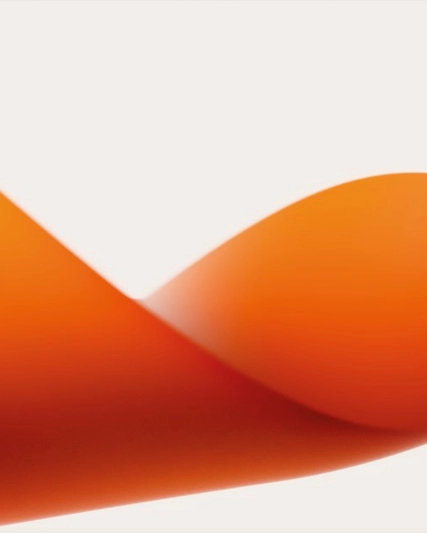Issued: London, UK
For media and investors only
New global survey finds widespread misunderstandings about shingles despite its lifetime prevalence
- A new GSK survey shows a large number of adults do not understand how shingles may be triggered1
- More than half of adults surveyed incorrectly believe that “you can catch shingles”1, despite the fact that by age 50, most adults already have the virus that causes shingles present in their bodies2
- With shingles affecting up to 1 in 3 people in their lifetime,3,4,5,6 these findings underline the need for people to seek advice from healthcare professionals to understand their risk
GSK plc (LSE/NYSE: GSK) today announced data from a new global survey,1 which was commissioned and funded by GSK, suggesting some significant gaps in the understanding of shingles amongst adults aged 50 and over, a group of adults at risk of the disease.4 As one of the most searched diseases on Google,7,8,9 public interest in shingles is high, yet these results show that understanding is comparatively low.
The online research surveyed 3,500 adults aged 50 and over from 12 countries, assessing respondents’ understanding of shingles, what may trigger it, and its impact on people’s lives.1
Shingles is developed by the reactivation of the varicella-zoster virus (VZV) and partly caused by the age-related waning of the strength of the immune system.2,4,10,11 With an ageing global population,12 the incidence of shingles is expected to increase as the average age increases globally.13 However, new data suggest that many adults from the age of 50 fundamentally misunderstand important aspects of the disease, including how it may be triggered.1
The top three misconceptions surrounding shingles in the global survey were:1
- 55% of respondents believe that “you can catch shingles from someone with shingles”1
Shingles cannot be transmitted from person to person like other airborne diseases such as COVID-19. Shingles is caused by a reactivation of the varicella-zoster virus (VZV) that is already residing in the person, the same virus that causes chickenpox,2 which remains dormant within the nervous system and can reactivate with advancing age.4,14
- Nearly 50% of respondents believe that “you can catch shingles from someone with chickenpox”1
Shingles is caused by the VZV;2 if a person has never had chickenpox before, the virus might cause chickenpox.15 The virus will then remain dormant within the nervous system and may develop as shingles when advancing age reduces the strength of the immune system.4,14
- 39% of respondents believe that “you can’t develop shingles if you’ve already had shingles”1
By age 50, VZV is present in most adults.2 The majority of people who develop shingles only have it once; however, it is possible to develop shingles more than once in a lifetime.15
Jane Barratt, Secretary General, International Federation on Ageing said: “This new insight into how limited shingles awareness is across the globe shows how much work needs to be done to ensure people have the right information on the disease, how it happens and who is at risk. As the average age of the global population continues to increase, it is important to be informed about health conditions that could affect us and know where to turn for support and medical advice. The IFA is proud to endorse such important research seeking to address a major gap in public awareness and knowledge of the serious and life altering condition of shingles.”
The survey also investigated where adults turn to for health-related information. Results highlight that over 40% of adults in the over-50 age group regularly turn to social media such as Facebook and Instagram,1 while nearly a third use internet search engines like Google at least once a week for such information,1 as opposed to reaching out to their doctors as often.1
In the 12 months leading to September 2023, there was a 70% increase in the number of Google searches for the question, “Is shingles contagious by touch or airborne?”, 16 highlighting both an increasing interest in shingles and the continued lack of understanding about the disease.
Piyali Mukherjee, Vice President and Head of Global Medical Affairs, Vaccines, GSK, said: “Shingles can have a profound impact on the lives of people and their families. With over half of the respondents believing that shingles can be ‘caught’ from someone else suffering from the disease, among other frequent misunderstandings revealed by the survey, these results emphasize the continuing need for enhanced awareness for this condition. We encourage all adults over 50 to approach their healthcare professionals for guidance on how to recognize, understand, and reduce their risk of developing this debilitating disease.”
About shingles
Shingles is caused by the reactivation of the varicella-zoster virus (VZV), the same virus that causes chickenpox.4 By age 50, VZV is present in most adults,2 and may reactivate with advancing age.10 As people age, the strength of the immune system response to infection wanes, increasing the risk of developing shingles.4
Shingles typically presents as a rash, with painful blisters across the chest, abdomen, or face.10 The pain is often described as aching, burning, stabbing or shock-like.4
Following the rash, a person may experience post-herpetic neuralgia (PHN), a long-lasting nerve pain that can last weeks or months and occasionally persists for several years.4 PHN is the most common complication of shingles, occurring in 5–30% of all shingles cases from findings in various studies.17
About the Shingles Misconceptions Survey
The Shingles Misconceptions Survey was an online survey of 3,500 adults aged 50 and over, conducted between 16 August 2023 – 18 August 2023 by Pollfish, Inc, on behalf of GSK, except for Japan where it was conducted by IPSOS on behalf of GSK.1
The survey was conducted across 12 countries (China, US, Germany, Brazil, Japan, UK, Australia, Italy, South Korea, India, Canada and Portugal), in 9 languages, with 250 respondents in each country, except for 500 respondents in US and India.1
Data was collated from 18 questions covering shingles awareness and misconceptions with all participants agreeing to participate in full transparency on both the source of the data commissioning, and to the use of their anonymised data.1
About GSK
GSK is a global biopharma company with a purpose to unite science, technology, and talent to get ahead of disease together. Find out more at gsk.com.
Cautionary statement regarding forward-looking statements
GSK cautions investors that any forward-looking statements or projections made by GSK, including those made in this announcement, are subject to risks and uncertainties that may cause actual results to differ materially from those projected. Such factors include, but are not limited to, those described under Item 3.D 'Risk factors” in the company's Annual Report on Form 20-F for 2022, and Q3 Results for 2023.
References
- Shingles Misconceptions Survey (Australia, Brazil, Canada, China, Germany, India, Italy, Japan, Portugal, South Korea, United Kingdom, United States), Pollfish on behalf of GSK. 18 August 2023. Available at: https://www.pollfish.com/blog/global-gsk-shingles-survey-insights. Last Accessed: November 2023.
- Johnson RW, et al. Herpes zoster epidemiology, management, and disease and economic burden in Europe: a multidisciplinary perspective. Ther Adv Vaccines. 2015;3(4):109-120.
- Australian Institute of Health and Welfare. Shingles in Australia. Available at: https://www.aihw.gov.au/getmedia/759199ff-f5c8-421d-a572-aaa984a02b49/aihw-phe-236_shingles.pdf.aspx. Last Accessed: November 2023
- Harpaz R, et al. Advisory Committee on Immunization Practices (ACIP), Centers for Disease Control and Prevention (CDC). Prevention of herpes zoster: recommendations of the Advisory Committee on Immunization Practices (ACIP). MMWR Recomm Rep. 2008;57(RR-5):1-30.
- Lee C, Giannelos N, Curran D, et al. Lifetime risk of herpes zoster in the population of Beijing, China. Public Health Pract (Oxf). 2023;5:100356.
- Curran D, Callegaro A, Fahrbach K, et al. Meta-Regression of Herpes Zoster Incidence Worldwide. Infect Dis Ther. 2022;11(1):389-403.
- Online analysis conducted by Helios Klinikum Berlin-Buch to determine which diseases were most searched using the search engine Google between May 2022 and May 2023. Available from: https://www.infranken.de/ratgeber/gesundheit/krankheiten/google-krankheiten-suche-ranking-studie-suchanfragen-experten-hautkrebs-diabetes-art-5747252. Last accessed: November 2023.
- U.S. most online searched disease symptoms 2019 from November 30, 2022. Available at: https://www.statista.com/statistics/1132636/most-searched-disease-symptoms-healthcare-problems-usa/. Last accessed: November 2023
- The 10 most Googled health questions answered from October 31, 2017. Available at: https://www.nzherald.co.nz/lifestyle/the-10-most-googled-health-questions-answered/BSQORMAZQLZTOPZHX7OMSU5J4Q/. Last accessed: November 2023
- Mueller NH, et al. Varicella Zoster Virus Infection: Clinical Features, Molecular Pathogenesis of Disease and Latency. Neurologic Clinics. 2008;26;675-697.
- Bricout H, Haugh M, Olatunde O, Prieto RG. Herpes zoster-associated mortality in Europe: a systematic review. BMC Public Health. 2015;15:466. doi: 10.1186/s12889-015-1753-y.
- World Health Organization. Ageing and health. Available from: https://www.who.int/news-room/fact-sheets/detail/ageing-and-health. Last accessed: October 2023.
- Pan CX, Lee MS, Nambudiri VE. Global herpes zoster incidence, burden of disease, and vaccine availability: a narrative review. Therapeutic Advances in Vaccines and Immunotherapy. 2022;10. doi: 10.1177/25151355221084535.
- Bollaerts K, et al. A systematic review of varicella seroprevalence in European countries before universal childhood immunization: deriving incidence from seroprevalence data. Epidemiol Infect 2017;145:2666-2677.
- Centre for Disease Control and Prevention. Shingles: Cause and Transmission. Available from: https://www.cdc.gov/shingles/about/transmission.html. Last accessed: November 2023.
- Google trends analysis, retrieved and correct as of September 22, 2024, detailing year-on-year uplift for searches of” shingles” and related queries globally from September 22, 2022 – September 22, 2023.
- Kawai K, Gebremeskel BG, Acosta CJ. Systematic review of incidence and complications of herpes zoster: towards a global perspective. BMJ Open. 2014;4:e004833. doi: 10.1136/bmjopen-2014-004833.


